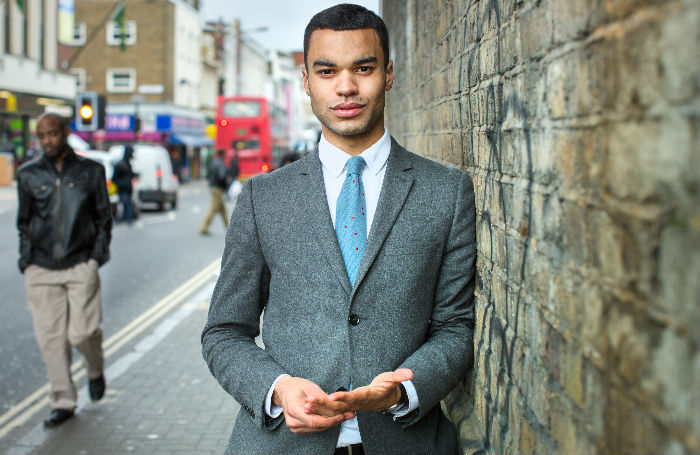In 2012 Thomas was awarded the RIBA Norman Foster Travelling Scholarship, documenting original research on informal livelihoods and recycling practices in six African cities. He has worked in practices in London, as a researcher at LSE Cities and at the United Nations agency UN-Habitat in Nairobi. Thomas is currently a Part 2 student at the University of Cambridge.

I am radically optimistic. I believe that anything is possible if I just try - and when I hit setbacks, I simply try harder. I think this belief is in my bones; it has always been there. It’s probably my best quality but also my biggest downfall. In the real world you risk becoming a bit obsessive if you go after things that are unobtainable - but I think the phrase ‘It’s impossible until it’s done’ encapsulates my attitude.
Where does that self-belief come from? I have seen how perseverance and curiosity can pay off: they are qualities that have enabled me to get my studies sponsored, secure internships and win scholarships. I don’t think I’m trying to prove anything to anyone but over the years some wonderful people have offered me their expertise, time and support, so I try to repay that generosity by doing things in a way that would reflect well on these individuals.
With a Jamaican mother, Maltese father and having been born in London, I have three possible identities right there. This ambiguous heritage and diffuse background offers me access to places and conversations that I wouldn’t otherwise have.
One of the things I value most about an architectural education is that it equips me for divergence into many other fields. The title of my dissertation was ‘The Street That Opens on to Somewhere’ and perhaps that’s a useful way to think about where my career could go. I don’t feel the need to pursue a set path. I have an appetite for new experiences.
When I was 21, I worked for the United Nations in Nairobi as an intern. Getting in there seemed an impossible prospect as it was largely down to who you knew. I networked and wrote to people until I was able to find a way in but it’s disturbing to realise the extent to which some people can gain the upper hand because of their background. It pleases me all the more that my education and my professional experiences have been based on my own efforts and pretty much from a blank canvas.
My time in Nairobi was a formative experience because it exposed me to runaway urbanisation and stimulated my interest in how space is used in an emerging urban context. I went on to win the RIBA Norman Foster Travelling Scholarship, which meant I was able to travel to half a dozen other African cities, conducting a comparative analysis to understand better the growing distance between urban renewal and street life. The people I interviewed were curious about where I come from because I looked a little bit like them and a bit like someone else. With a Jamaican mother, Maltese father and having been born in London, I have three possible identities right there. This ambiguous heritage and diffuse background offers me access to places and conversations that I wouldn’t otherwise have.
I think diversity, in and of itself, generates creativity. It also strengthens the authority and credibility we bring to our projects.
How is that relevant to architecture? It allows a level of empathy, insight and connectedness. We need to highlight stories of diverse students from diverse backgrounds to show that it’s possible for people to progress and thrive within architecture in their own way. I am from an ethnic minority, neither of my parents went to university and my family didn’t have a lot of money – you need examples like this to show what’s possible, to challenge convention and confound expectation.
We live amid diversity, so with a city like London the make-up of a design team should in some way reflect the people you’re designing for. I find it uncomfortable when I’m in an environment where everyone looks, acts and thinks the same way. I think diversity, in and of itself, generates creativity. It also strengthens the authority and credibility we bring to our projects. And I mean diversity not just in the colour of a practice, but also in its gender, in its sexual orientation, in its cultural background, in all possible ways.
I’m this year’s Stephen Lawrence scholar and as much as the financial support is necessary, Stephen’s legacy is a very important driving factor. I have an opportunity that Stephen didn’t have. I’m aware that I’m extraordinarily fortunate in the series of circumstances that have got me to where I am, and it’s not that far - I’m still only a university student. But it’s important to take stock and realise the opportunity I have, so I can make the most of it, embrace it and stretch it as far as possible.









